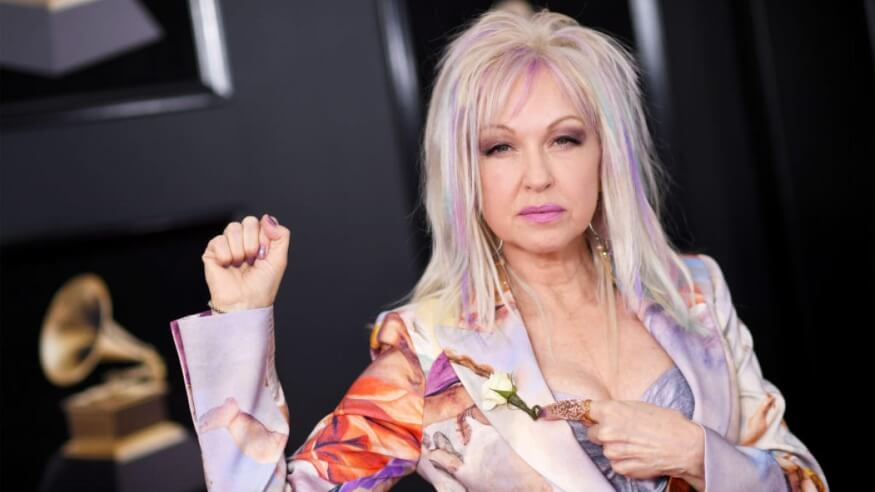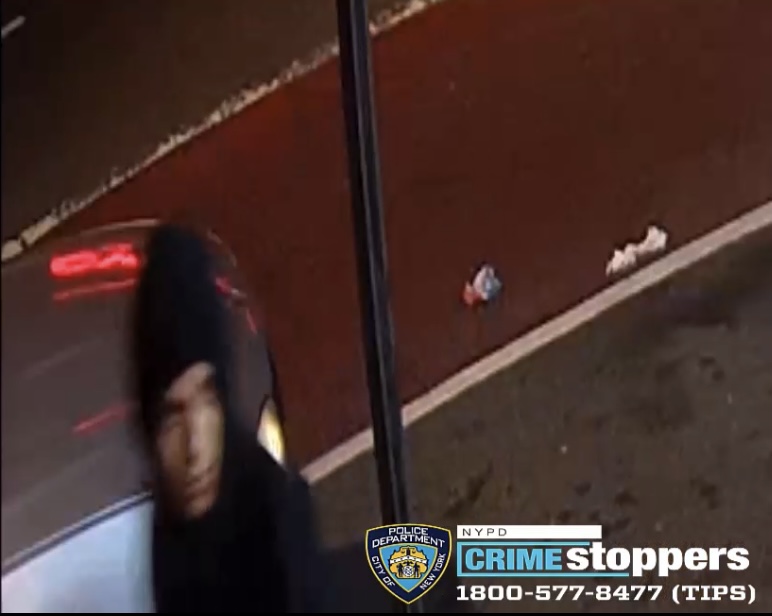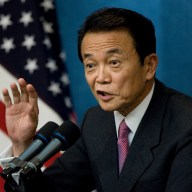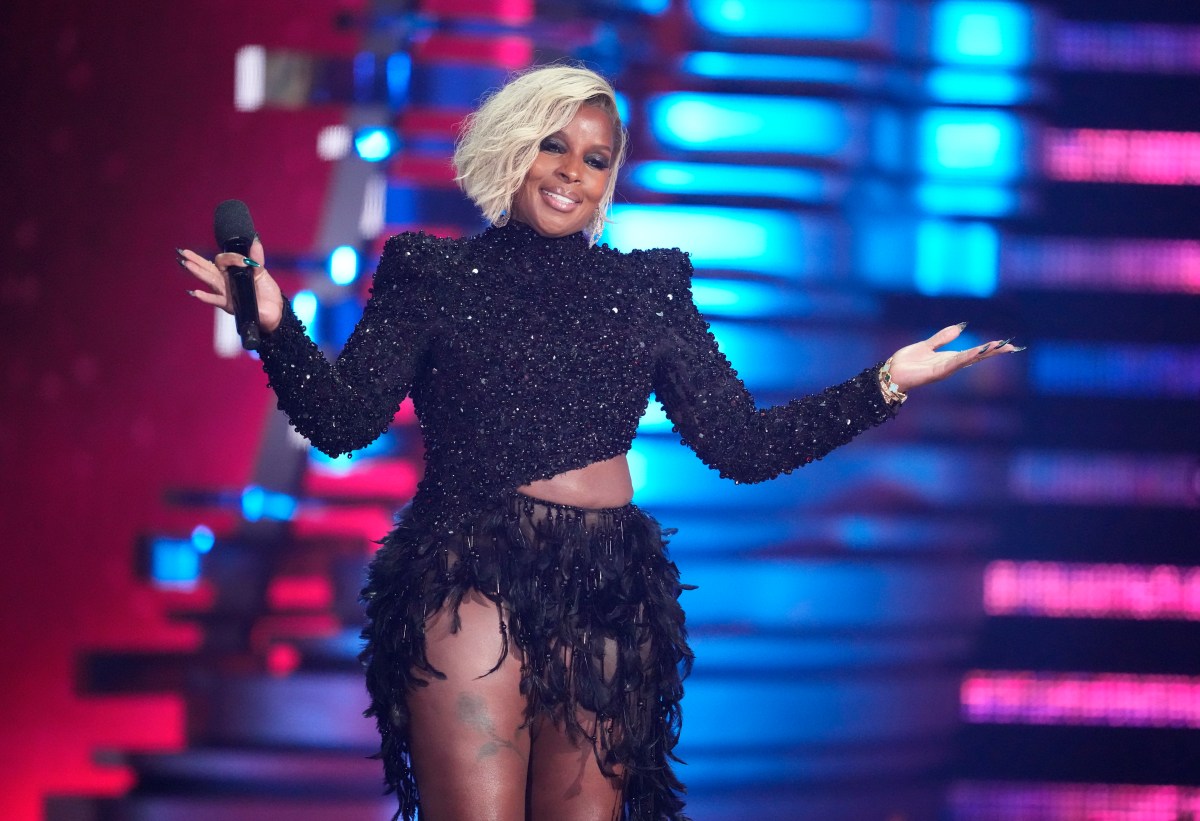As an artist, Cyndi Lauper is one of the most decorated performers of her generation, earning Grammy Awards for her timeless hits, a Tony Award for her work on the hit Broadway musical “Kinky Boots” and even an Emmy for her hilarious guest appearance on “Mad About You.” But as an advocate and an activist, the 66-year-old star has proven herself to be a legend for much more important reasons.
Lauper has been a true LGBTQ champion over the years, with her song “True Colors” becoming an anthem for the community. It also inspired the name of her nonprofit, True Colors United, which she founded in 2008. The organization works on addressing the issue of youth homelessness, specifically aiding members of the LGBTQ community, who make up 40 percent of America’s homeless youth population.
Each year, True Colors United hosts “Cyndi Lauper & Friends: Home for the Holidays,” a benefit concert in support of the organization. This year, the show returns on Tuesday, Dec. 10, at The NOVO at L.A. Live in Los Angeles with a stacked lineup of stars, including host Carson Kressley, Marilyn Manson, Billy Porter, Margaret Cho, Lily Tomlin, Kesha, Henry Rollins, Brandi Carlile and more.
Lauper has also recently lent her voice to the PsO at Work campaign by Novartis. Through the campaign’s website as well as using the hashtag #PsOatWork on social media, patients struggling with psoriasis can share their stories and find resources as they seek solutions for keeping their symptoms under control.
Ahead, Lauper talks more about her struggles with psoriasis, advocating for the LGBTQ community, her new Netflix series with Jane Lynch and more.
What inspired you to join the PsO at Work campaign?
Cyndi Lauper: I’m doing it because I’m one of 8 million people in America who have and are living with psoriasis. It’s an interesting campaign because it’s hard to hide while you work. Obviously, I can adjust my hours, but there are people who work in offices, banks, different jobs around the country, who go to work and have psoriasis. I know nobody talks about it, so that’s why I’m doing it.
For me, when I started to hear other people’s stories, it helped me to feel better, No. 1, that I wasn’t alone. And, No. 2, realize there’s many options out there and people handle it a lot of different ways. I finally found something that keeps my psoriasis under control and I have skin again. I’m so grateful that my skin feels like skin, looks like skin. It’s not awful. I’m not shedding. I’m not bleeding. I’m not totally inflamed. I don’t get freezing cold and hot all at once because I was so head to toe with it that I could no longer regulate my body temperature. I’m excited that I am now living with psoriasis under control. I think for a lot of people who are still not having great success with putting this under control, this website might be really just the thing to get them going.
How did psoriasis affect you as a creative person?
Cyndi Lauper: A lot. I didn’t know what to do for myself. I tried every cuckoo thing. I was on tour with Cher when I was covered from head to toe with it. I had some really weird, what I used to call “Sir Lancelot” outfit because I had to cover this and cover that, and long tight shirts that would hide the psoriasis. And then, of course, when I took it off my skin would come off. It was really very painful and it was hard.
I don’t know how I got through. I was seeing a Chinese doctor, so I was soaking my feet afterwards in the tea that he gave me and I was taking a bath in the tea. So basically I was detoxing pretty strong, plus running through an arena climbing like 12-foot stairs and singing and hitting it hard on one night. I had global amnesia. I didn’t know what happened to me. Then I realized, all the stuff I was doing that made my skin feel better was detoxing and I couldn’t do that and work. It’s really, really debilitating.
You’ve been a champion for the LGBTQ community for a long time. What’s been the inspiration behind working on projects like True Colors United and the Home for the Holidays benefit?
Cyndi Lauper: First of all, friends and family. I grew up watching my sister struggle with just being herself. I think that when I was pregnant and I started reading when the internet was new and I felt like Captain Kirk looking at it like it was all “Star Trek.” You could type something and somebody types something back at you from like another part of the country. I couldn’t even believe it. So, I started to read letter after letter of people who said that “True Colors” the song saved their life because they had been disenfranchised from their job, their family, from their friends. When you’re alone like that and feel suicidal – which a lot of people do, there’s still a lot of teenage suicide because people are different.
I grew up in the Civil Rights movement. I remember Dr. King and I remember what he said, that the arc of history leans toward justice. That is what always drove me on. I guess when I started working and meeting people from the Human Rights Campaign, especially one woman who worked there, Cathy Nelson, she was a great mentor. She taught me that you can change things, and we did. We helped promote the hate crimes bill that was amended to include the LGBTQ community because of Matthew Shepard and [James Byrd Jr.]. I think that it’s important that you include everyone. A hate crime is a hate crime. For the LGBTQ community, they are targeted a lot. I felt that it was important. We worked and advocated. Information, that’s what people need. I, in my heart, believe that in America we are fair-minded people. We all came from immigrants, unless you’re Native American and you really got screwed. I think that, as an American, I always thought it was part of the privilege of being an American to participate. I always felt that you need to vote. You can’t complain if you don’t vote. You need to represent how you feel.
What can you tell us about the “Golden Girls”-style comedy you’re working on with Jane Lynch for Netflix?
Cyndi Lauper: I was working with this group Skydance, I really like those guys. They started to come down to all the concerts in L.A. We tried this other project, it didn’t work. Finally, because of my work, I’m up channel surfing and I watch a lot of “Golden Girls,” plus “Mary Tyler Moore” when I find it and “The Honeymooners.” Those are the go-tos. And if it works out with the “Golden Girls,” I’m happy. I was watching it so I said to them, “Why not just reboot the ‘Golden Girls?’” But it’s not just a reboot. I was thinking: where are the “Golden Girls” of today? That was then. What about today? Where are we?
I’m like a feckless Sophia. I’m a jailbird in the show. It’s funny. And just like physically, Jane’s really tall and I’m really short. I’ve always been a big fan of “Rocky and Bullwinkle” too from the time I was young, so it kind of felt like we could be like Rocky and Bullwinkle, in a way. Jane Lynch, she’s awesome.
As an artist, as an advocate, what does the word legacy mean for you?
Cyndi Lauper: I don’t know. Everyone always says, “Oh, you’re an icon!” I don’t know what that is. I think that, for an artist, basically you just keep going. Of course, the accolades help you continue your work, but it’s got to be about the work first. Even when I first started – and I probably wasn’t that good – I still thought I was great because it felt great. As long as you feel that great thing coming through you, then you’ve got to continue. If you have a creative mind, then you’ve got to use it, otherwise it will choke you. I always look at it as you’ve got to keep going. I’ve been told no so many times, and you just got to look beyond the person telling you no and think, “Okay, I want to go here, how do I get there?” And make a plan. I always tell young artists, “Sometimes it takes eight years, sometimes it takes 10 years. The difference between people who make it and who don’t are the people who give up and the people who don’t give up.”
This interview has been edited and condensed for brevity and clarity.
















